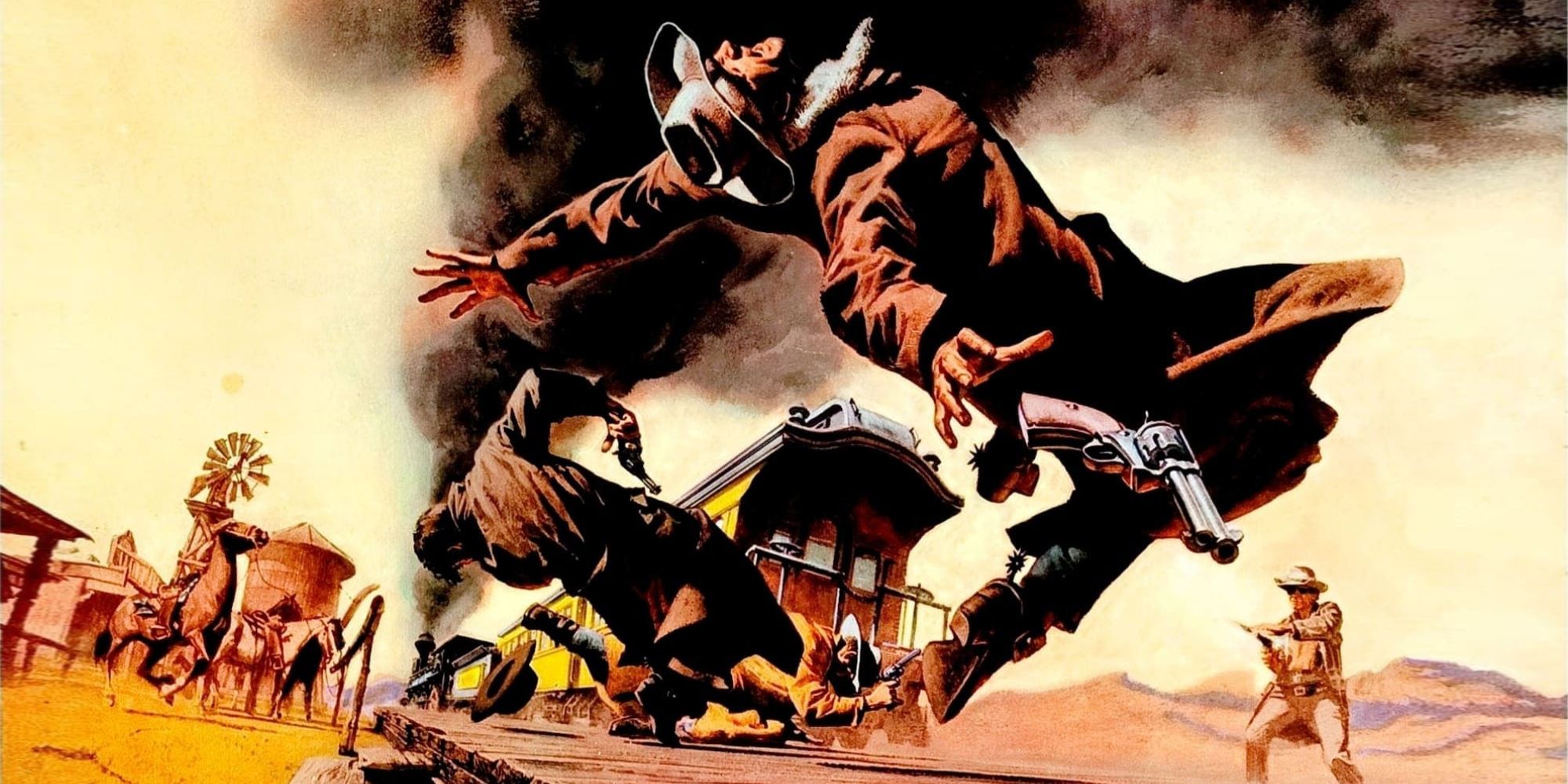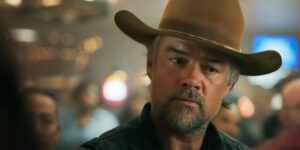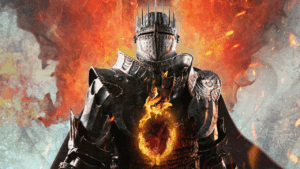Charlton Heston Played Buffalo Bill in This Overlooked Western With Tons of Old-School Action
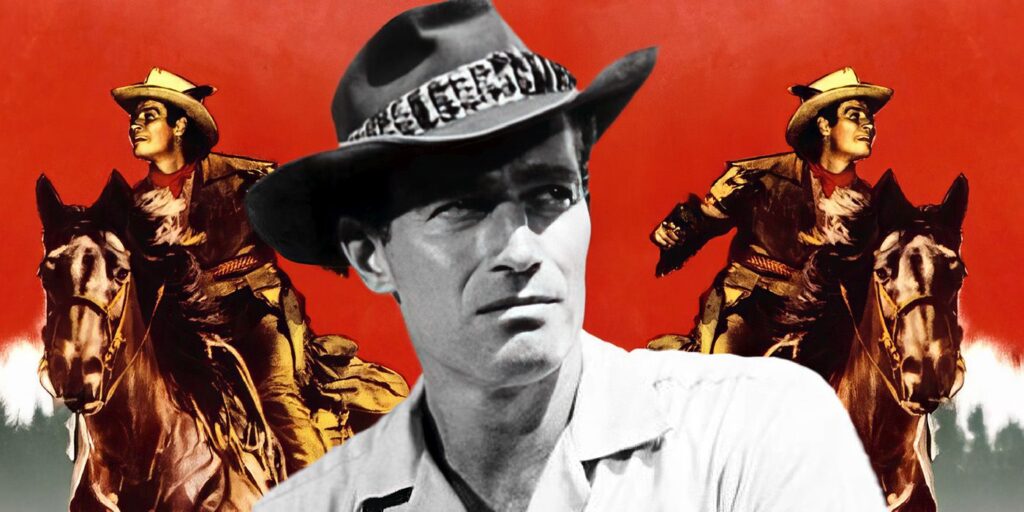
It is easy to associate Charlton Heston with his portrayals of towering historical figures—Moses in The Ten Commandments, John the Baptist in The Greatest Story Ever Told, and the titular Ben-Hur. But the Best Actor Oscar winner also had a solid run in Westerns like The Big Country, his personal favorite Will Penny, and Tombstone. Even before he became a full-blown movie star (back when A-list actors were real household names), he was already bringing real presence to the earlier roles he was cast in. In the understated 1953 Western Pony Express, he took on the most storied Wild West icon on the big screen, William Cody, better known as Buffalo Bill.
Set in California’s Western frontier against murmurs of the Civil War, Pony Express is a cinematic tribute to the American dream. It celebrates bold ideas, hard work, and sheer grit as the nation’s founding pillars. The film is based on the historical and entrepreneurial spirit of prospectors who founded Poly Express, the precursor to the never-dying postal service as we know it today. Its founders envisioned providing a service with an unprecedented mission of getting mail across the vast and untamed American frontier in record time. While in real life the Pony Express went under just eighteen months after its launch, the film helps to keep its inspiring story mythical. Directed by Jerry Hopper, who helmed several solid entries in the 1950s genre fare, Pony Express is a delightful, fast-paced action film that saw Heston’s early-career gravitas. As a Western, it might not be to the level of The Searchers, but it is definitely an engaging tale for fans of Charlton Heston and frontier tales alike.
‘Pony Express’ Is Relevant Today For Its Depiction of Belief, Grit, and Getting the Job Done
Pony Express is not here to document events as they happened back in the day. It leaves that to historians. After all, facts about Buffalo Bill himself are as murky as half-truths. Instead, the film tells its own story about what lies at the heart of America. Or, to borrow the words of my Kenyan homie, actress Lupita Nyong’o, during her Oscar speech for 12 Years a Slave: “Your dreams are valid.” Charlton Heston’s Buffalo Bill is a man who gets things done. His big idea of cutting mail delivery time across America by half using riders on horseback sounds crazy to some. But he believes in it. He’s prepared to push forward through anything to get it done—the unforgiving landscapes, power-hungry men like Rance Hastings (Michael Moore) plotting to split California from the Union for personal gain, even taking on hostile Native American tribes. Accompanied by his friend Wild Bill Hickok (Forrest Tucker), Buffalo Bill’s dedication to the Pony Express is a tribute to those who gave their all to make the United States of America the economic powerhouse it is today. While the two Bills’ dynamic is not necessarily exceptional, it is definitely enjoyable.
Away from the main plot, Pony Express offers powerful subplots that still align with its big picture. For instance, the triangular romance (a classic 1950s Western fluff) connecting Buffalo Bill with Evelyn Hastings (Rhonda Fleming) and pitting her against Denny Russell (Jan Sterling) to compete for his affection still resonates with the main theme of the film about truly going after your heart. The movie doesn’t make us choose between the two women for Buffalo Bill. What Pony Express delivers instead is a gripping look at the people who risked everything to navigate and tame a wild and unmapped frontier.
Jerry Hopper’s Direction Is About Tension, Terrain, and a Hint of Swagger
Jerry Hopper gets the film’s momentum right. He doesn’t linger a second longer on a scene than is necessary. Instead, he prefers a pace of chase sequences and shootouts, making the journey through the film a thrilling ride. You can bet that there’s an ambush or political double-crossing just frames ahead. The screenplay, based on a story by Frank Gruber and written by Charles Marquis Warren (it is also loosely based on the 1925 silent film The Pony Express and the 1939 film Frontier Pony Express), is injected with doses of humor, even if at times it feels over-the-top, but it is appealing nevertheless, because the film and Heston’s delivery set this playful tone from the beginning. His Buffalo Bill swashbuckles with a cheeky confidence from the outset. While Heston played Buffalo Bill with a showy exaggeration—almost a wink to the legend’s more flamboyant side—his commitment to the role keeps it from tipping into farce.
Pony Express falls short of the psychological depth of Winchester ’73, but the strength of Hopper’s picture lies in its elegant minimalism. It carries the beauty of a lean, well-paced story with old-school action and just enough charm to make you wish more people talked about it. A brisk ride with one of Hollywood’s most iconic screen presences, Pony Express gives us classic Heston: tall in the saddle, fierce in the fight, and sharp as ever.
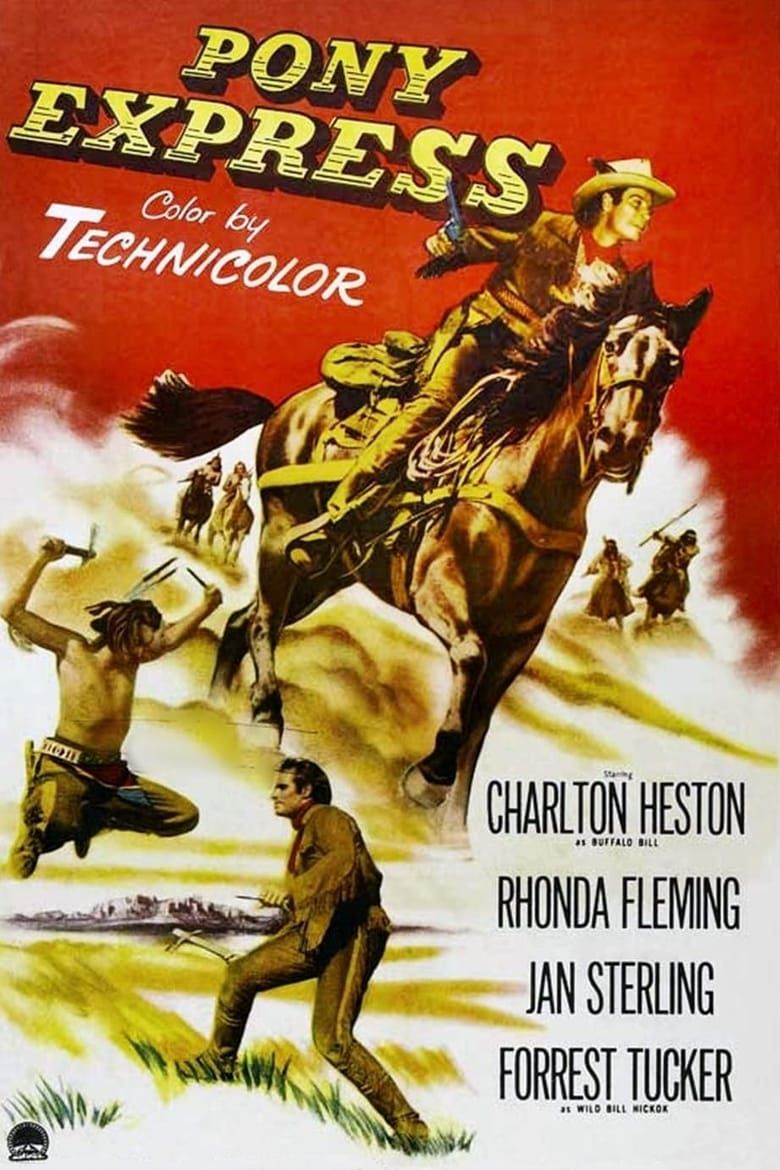
- Release Date
-
June 15, 1953
- Runtime
-
101 minutes
- Director
-
Jerry Hopper
- Writers
-
Charles Marquis Warren
- Producers
-
Nat Holt
-

Charlton Heston
Captain William Frank ‘Buffalo Bill’ Cody
-

Rhonda Fleming
Evelyn Hastings
-

Jan Sterling
Denny Russell
-

Forrest Tucker
James Butler aka Wild Bill Hickok

